
views
- Reflect on what matters to you in life. Journal about work, relationships, and hobbies to help you decide.
- Start enjoying fulfilling routines. Search online for activities you've never tried (and try them!), or enroll in classes at your local lifelong learning center.
- Become a happier person by committing yourself to regular volunteering and diving into your relationships.
Assessing Your Life

Define what a life is to you. This notion of "a life" is subjective. You need to reflect on what is important to you. What do you want to achieve in life? What makes you happy? Only once you think about those kinds of things will you begin to realize how to attain a life. Don't let others define a meaningful life for you. While it is true that many people will tend to see certain things as more indicative of "a life" than others based on human universal needs, such as having kids or family, having fun experiences, or having meaningful work, ultimately, what matters most is what you personally find to be important.

Write in a journal. Write about the things that are bothering you in your own life or that excite you. Keeping a journal has been found to increase well-being and can help you find patterns in your life both positive and negative. More specifically, writing in a journal can help you clarify your thoughts and feelings, allow you to get to know yourself better, reduce stress, or solve problems by looking at them in a new light. Figure out whatever kind of journal works best for you. You could write with pen and paper or keep a digital journal on your laptop. What matters most is getting your thoughts on paper and reflecting on them.

Discuss your life with others. Sometimes, the act of expressing yourself to another can give you an in depth view into what you want and need. In addition, other people may have insight into your life that you may be blind to. Consider booking an appointment with a counselor, if you do not want to talk to family or friends. Talk therapy can be very effective both at treating underlying emotional issues but also at giving your thoughts life and helping you sort through them.
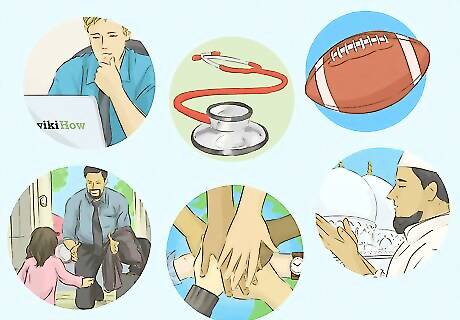
Break your life down into domains. List the main areas of your life, such as social, work, spiritual, family, leisure, health, community and charity. Once you have broken your life down into these domains, reflect on whether you are happy with these aspects of your life. Getting a life usually means creating a balance among the domains of life you find to be important. Take to heart the phrase "everything in moderation." Reduce activities that are not done in moderation to achieve a more balanced life.

Brainstorm ways to create more time for areas that are lacking. Say, for example, that you identify that you are not doing enough for your community and for your health. Spend some time thinking of ways to create more time to improve your life in these specific domains. For example, you could make a list of a few charities you would like to inquire about. Regarding your health, you could take some time adjusting your budget to see if you can afford a gym membership. You could spend some time researching local sports teams you could join. If you are particularly busy, you may also have to think about where to cut back on to gain the extra time or resources. The best places to start are domains you think you are spending too much time on (e.g., work).

Reassess your life every few months. Review the state of your life (you can do this in part by reading your journal) and decide if your life is more fulfilling with the changes you have made. The best way to decide is if you personally feel happier about your life. Remember not to think too much about what others may think about your life. You are the one living it, after all. Give yourself time to change your life, as it won't be easy. Try to focus on making small changes over a year. After a year is over, you should have a better idea of what makes you happy.
Making Life Plans

Practice letting go of the things you cannot control. Inevitably, things will come up in your life that are largely or entirely out of your control. This is just part of life. While you cannot change certain circumstances, you can change your attitude towards them. Trying to control the things you can't can often backfire and make you more stressed out. Every time you think of something that you cannot control, write it on a piece of paper. Place it in a box and move on. Letting go of stressful situations or people will allow you to work on the things you can control.

Live in the present. Think about how you will make today better, instead of always working toward a future goal. If you life too far ahead in the future all the time, you are missing out on life. Life only happens in the present moment. While this isn't a recommendation to live every day like it is your last, because every day is not actually your last, it is a good idea to spend some time each day enjoying the present moment. To live more in the present, you can: Do only one task at a time; avoid multitasking. Put some space in between your day to day tasks to give you some time to reflect and not feel too rushed. Set aside 5-10 minutes each day to do absolutely nothing at all but sit in silence. Eat slowly and focus on the flavor and texture of your food.

Do something new every week. Get an activity guide for your city, ask some friends, or dig around online for fun things to do near you. Take a risk and try some new activities. Go by yourself or ask a friend or your significant other. What matters most is that you are trying something novel and being open-minded about it. Trying something new can have a number of benefits, such as: Giving you courage by facing the unknown. Fighting off boredom. Allowing you to grow via new experiences.

Learn something new. Take a class online or in person or watch some free lectures online. A lifelong learning center can provide an inexpensive opportunity to learn photography, social media or another skill you've been wanting to master. You can try these websites to search for classes or lectures that interest you: https://www.coursera.org/ http://oyc.yale.edu/ https://www.edx.org/
Setting Work Limits

Do not work on weekends. Make sure you have two days per week to devote to yourself and/or your family. Make the working weekend something that is abnormal, not normal. If you can cut down time in the work domain, you will find more time for other important life domains. Try to keep in mind that work is like a gas, it will continue to expand if you let it. It will take up more and more of your time. You can always work more. There will always be more work to be done. Just save it for a week day!
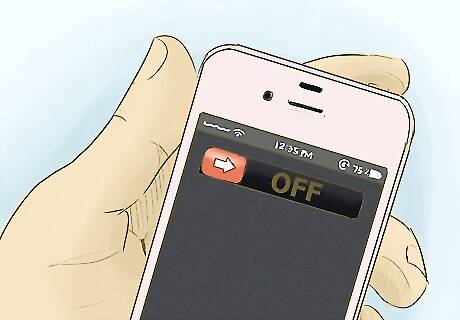
Turn off electronic devices when you get home. Ask your family to do the same for several hours per day, so that you can connect. Studies show that checking your email less can make you happier, so turn your phone off and spend some quality time with those you love.

Take a risk at work. Volunteer for something or go the extra mile on a project. Showing initiative and using more of your intellect can make work more fulfilling. That said, keep in mind that balance in your life is important, too. You will have to ask yourself whether it is worth putting in that extra work time to do something fulfilling even if it means taking time away from other important life domains. Only you can answer that question for yourself.

Remember why you work in the first place. Most of us work in order to be able to enjoy life. If you are spending all your time working and you are not having any time to spend with your family or to do the things you love, then you need to find ways to cut back. Keep in mind, however, that if you get lots of meaning out of your work and view your job as giving you the life that you want, then it is totally fine to work a lot. What matters is what you view as important in defining your life.
Getting Healthier
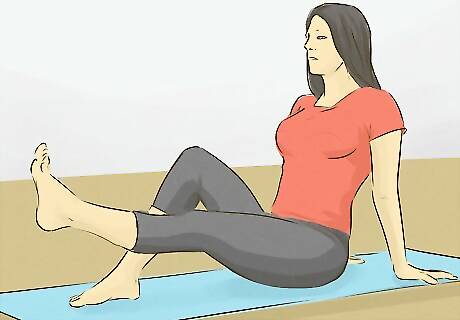
Get exercise. Working your heart and muscles for at least 30 minutes a day will actually help you live healthier and longer. Try some of these ideas to improve your physical life: Plan outdoor and adventurous activities with your family. Make exercise fun several nights a week or on the weekend. Go hiking, biking, explore your local city on foot or play a sport. Join an adult sport league or active hobby group. If you miss being part of a team, join a soccer, kickball or basketball league. Most cities and suburbs have many options, and they schedule games after work and on weekends. Try a new workout. If you usually go to the gym, try new classes or get outside to walk or run several days a week. Break up your routine.

Walk in nature. Experiencing the beauty of nature can lead to feelings of awe and make you feel more wondrous. So, get out in nature whenever you can for your health and for getting a sense of wonder.
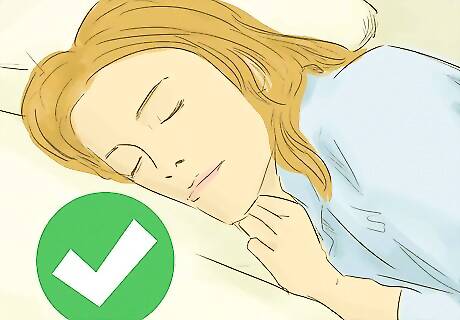
Get plenty of sleep. Give yourself 8 hours plus an hour to get ready and an hour to wake up. The result can be a relaxed, happier self. Make sure to stick to a routine; falling into a typical pattern of sleep can help you fall asleep each night. Make sure to create a dark, noise free room that can help you sleep. Also, avoid drinking caffeine close to when you go to sleep or you may have trouble falling asleep.
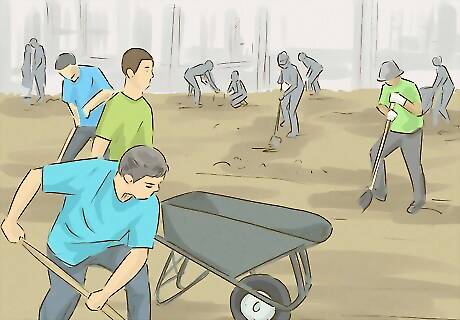
Volunteer for a charity. Donate your time and connect with people who need your help. Studies have shown that volunteering for a charity can make you happier, improve empathy and make you feel fulfilled. To find a charity, search online, ask around in your neighborhood, or look in your local newspaper for opportunities to volunteer.

Build your relationships and support system. Pick at least an hour a week where you can interact with people who are important to you without distractions from work. This will increase your mental well being and decrease your stress; social support is very important for health.




















Comments
0 comment